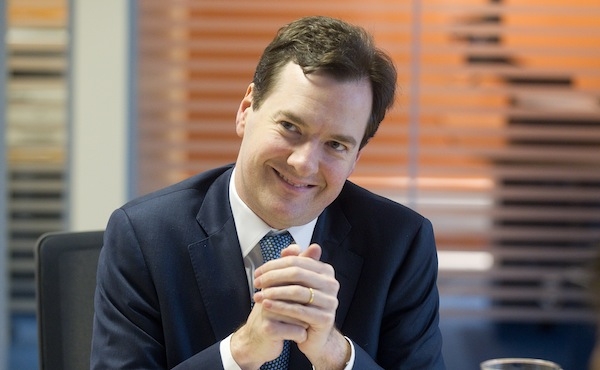George Osborne and Ed Balls are now locked into something of a staring match over the Libor scandal, with one waiting for the other to flinch. After Paul Tucker’s evidence to the Treasury Select Committee yesterday cleared the Shadow Chancellor and his ministerial colleagues in the Labour government of leaning on the Bank of England, Balls demanded an apology from Osborne for his comments to the Spectator.
Andrea Leadsom, one of the members of the committee, saw enough in Tucker’s testimony to publicly call for an apology. This is significant because Leadsom is not the sort of MP who openly briefs against her bosses. She may have a slightly rebellious streak over Europe, but she’s no Nadine Dorries when it comes to making pronouncements on the Government. She told The World Tonight:
‘I think obviously he made a mistake and I think he should apologise, but I think the real issue that concerns people in the country is what exactly is going on in the banks.’
Asked whether Osborne had been using the accusations against Balls to obscure the debate away from what was taking place in the banks, Leadsom said:
‘No I don’t think so at all, I think it was a very valid discussion at the time about who knew what and that’s now been completely squashed by Paul Tucker and that is a valid conversation to have had, and now at a personal level he probably would want to apologise.’
She added that Osborne ‘probably thought there was enough of a smoking gun’.
William Hague tried to defend the Chancellor this morning, giving the Today programme the line that Osborne will no doubt be sticking to: ‘The Chancellor said there are questions to answer, there remain questions to answer, and I see no reason why he should apologise for that.’
The danger for Osborne, though, is that other backbenchers identify with Leadsom’s comments and feel the Chancellor is more focused on a personal scrap with Ed Balls than the issues at stake over Libor. Rachel Sylvester has a quote this morning from a Tory Minister accusing Osborne of ‘becoming more and more like Gordon Brown’.
By making this scandal as much about blaming Balls as it is about what was going on inside the banks, Osborne has taken a big risk. Even Paul Tucker, whose bid for Bank of England Governor was badly wounded at the Select Committee yesterday, takes second place to the Chancellor in terms of media limelight. The big debate now is less about ‘who knew what’ and more about whether Osborne will apologise.







Comments